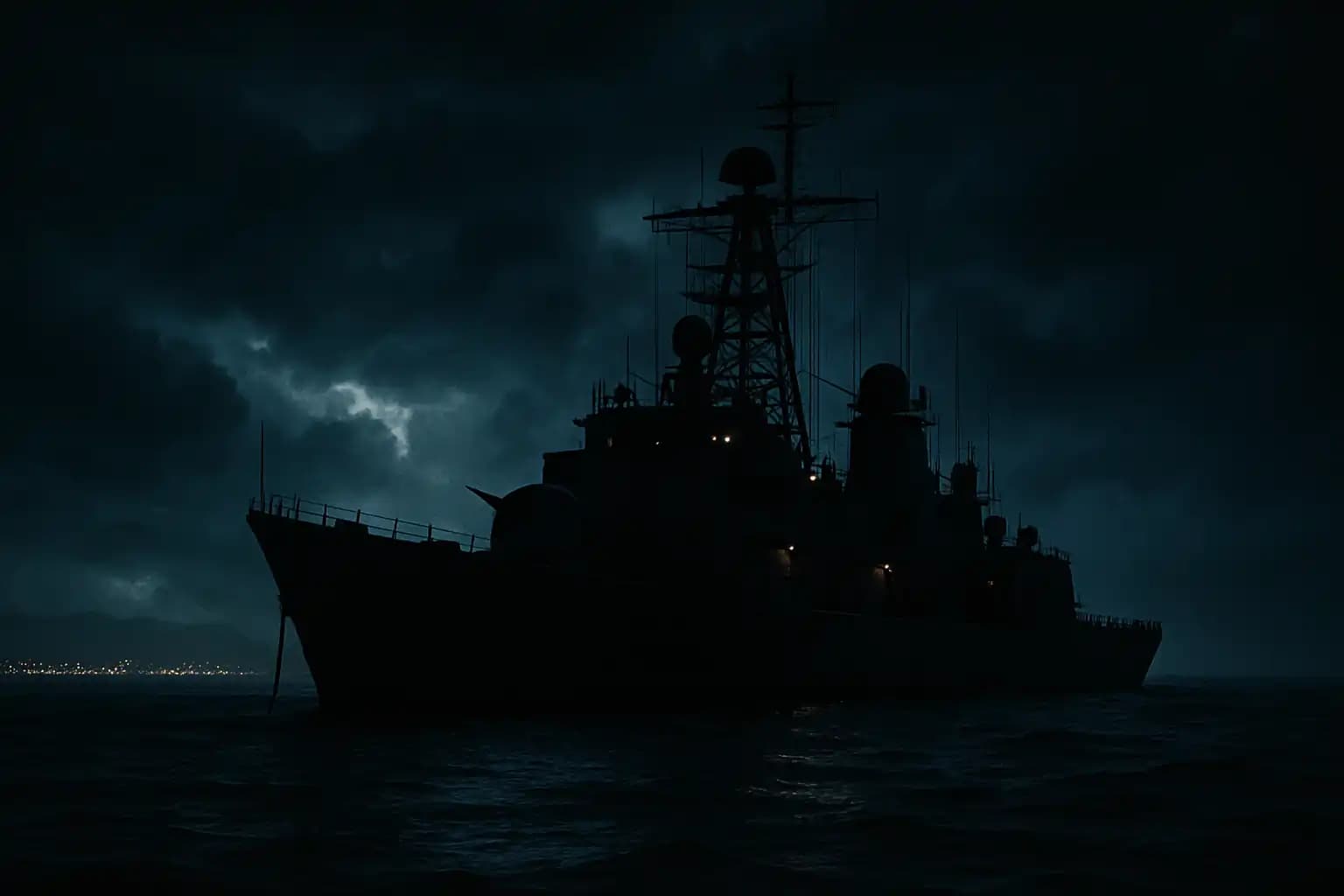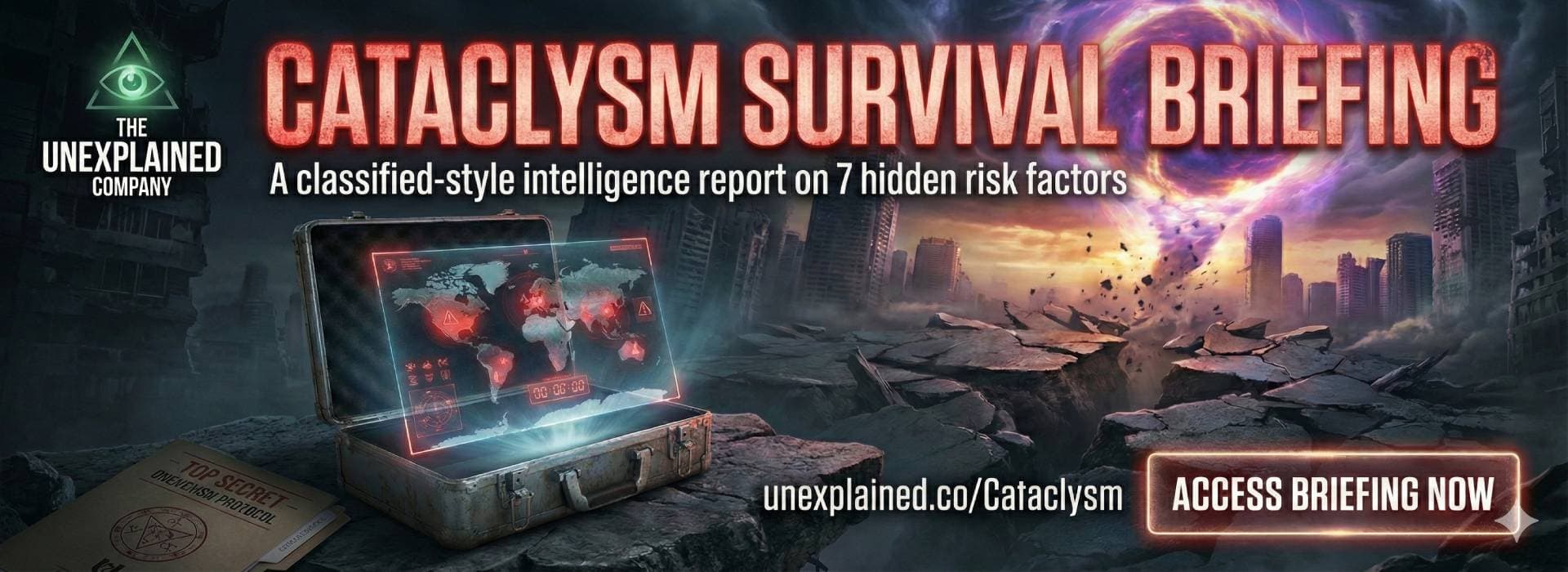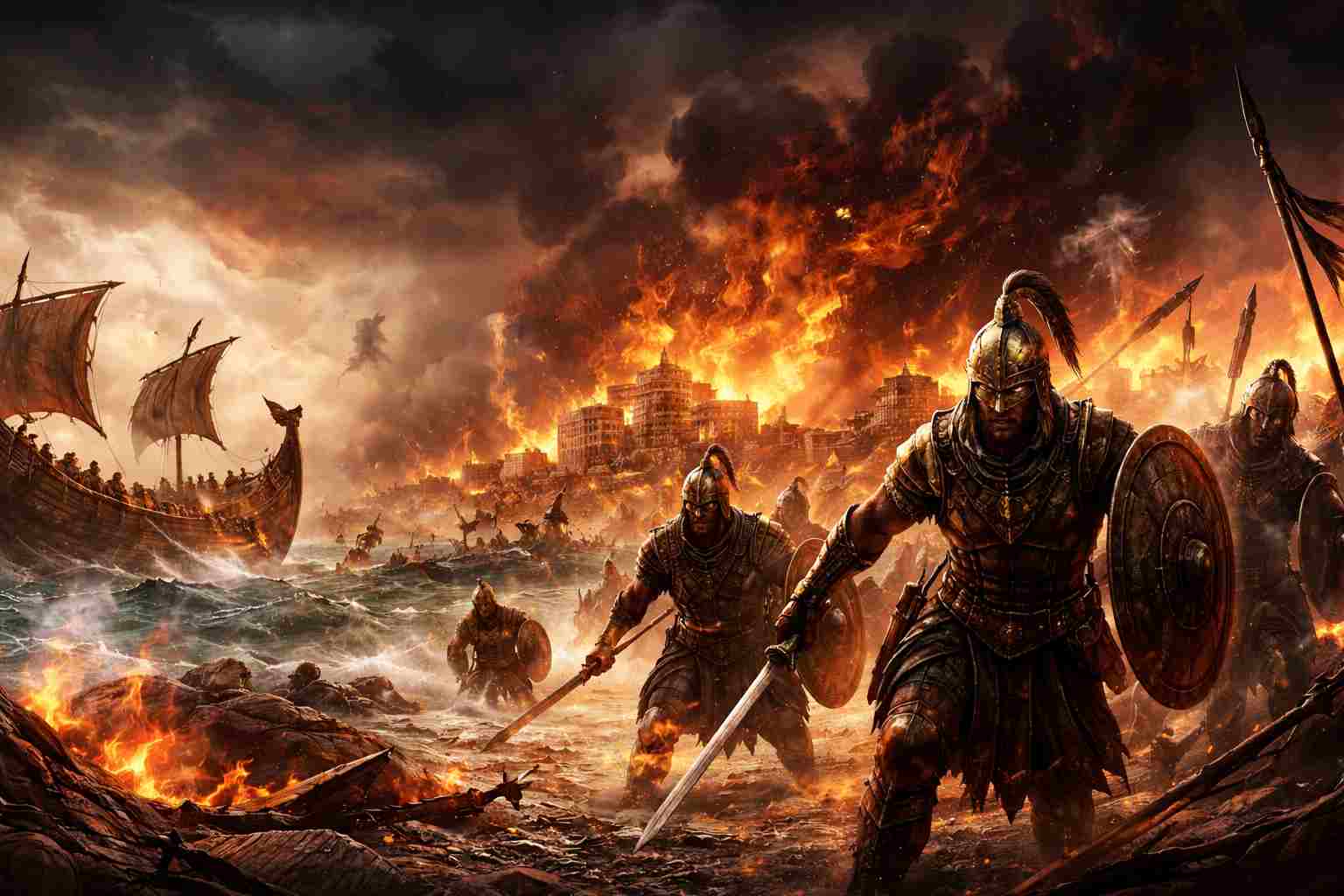The drama off Venezuela’s coast resembles a techno-thriller, but it springs from black ops and regime paranoia. In late September 2025, satellite imagery showed the U.S. military vessel, the MV Ocean Trader, ominously present near Venezuelan waters. This vessel signals Washington’s covert escalation in the hemisphere. According to OutKick, this “ghost ship” blends into civilian shipping, evading tracking systems. Its true mission remains shrouded in secrecy as tensions rise.
Black Ops At Sea: The MV Ocean Trader’s Unusual Mission
The MV Ocean Trader, a heavily modified commercial ship loaded with advanced surveillance tech and Special Operations capabilities, plays a crucial role in America’s blockade of Venezuela. Its recent disappearance from global maritime trackers has sparked speculation: has it slipped into hostile waters for sabotage, or is it merely a decoy in a complex game of cat and mouse? U.S. Navy officials remain silent, prioritizing operational secrecy over public briefings (OutKick).
Its presence coincides with an uptick in American naval forces, echoing strategies explored in high-level escalation analysis and real-life maritime mysteries highlighted in archival cover-up investigations. U.S. Joint Task Forces operate aggressively in the Caribbean, intensifying actions against trafficking and sanction violations.
Maduro On the Run: Power Plays and Crumbling Alliances
As the U.S. “ghost ship” evades trackers and covert operations surge, Nicolás Maduro’s regime descends into crisis. A 2024 plot to turn Maduro’s personal pilot into an informant, uncovered by AP News, illustrates the dictator’s precarious circumstances. While government officials deny he is in hiding, U.S. intelligence reports indicate frantic troop movement and last-minute withdrawals by top officials.
Recent U.S. deployments, outlined in Pentagon briefings and public warnings, place military pressure directly on Caracas. Opposition factions are divided over transition tactics. The backdrop? A society battered by blackouts, shortages, and a disputed third-term claim by Maduro’s regime inciting mass protests and international condemnation, reflecting crises analyzed in deep-dive political myth analysis and regime-changer exposés.
Ghost Strikes and Maritime Interdiction: A New Era of Naval Warfare
Since September 2025, U.S. forces have destroyed multiple vessels they claim were traffickers or linked to cartels, some confirmed near Venezuelan waters. A Newsweek investigation reveals intense debate in Washington over the legality and rules of engagement. Critics label some strikes “sanctioned murder,” with intelligence-gathering and legal justifications kept tightly classified.
Military experts and journalists tracking these strikes liken them to a new model of warfare: characterized by asymmetric, deniable actions that blur the lines between anti-cartel policing and political pressure. Such operations align with themes from hybrid war playbooks and technology gone rogue, as physical and cyber tactics increasingly converge across conflict arenas.
Why This Drama Matters: Beyond Regime Change to Global Realignment
The fate of Venezuela’s strongman and the U.S. maritime campaign extends beyond a mere war story—it signals shifts in global power dynamics. Economic sanctions, cyber ops, blockades, and persistent clandestine naval actions define the new “gray zone” conflict era, which skirts outright war while posing existential threats. For Venezuela, the internal power vacuum is widening. Persistent shortages and civil unrest erode Maduro’s control. Both opposition and intelligence assessments agree: the critical question is not if, but when, a transition—peaceful or not—will erupt in Caracas.
This standoff illustrates how informatics, disinformation, and special forces shape geopolitics, akin to findings from unlikely alliances and AI-driven regime threat analysis. For relentless, real-time coverage and cold analysis, follow the reporting on Unexplained.co.





